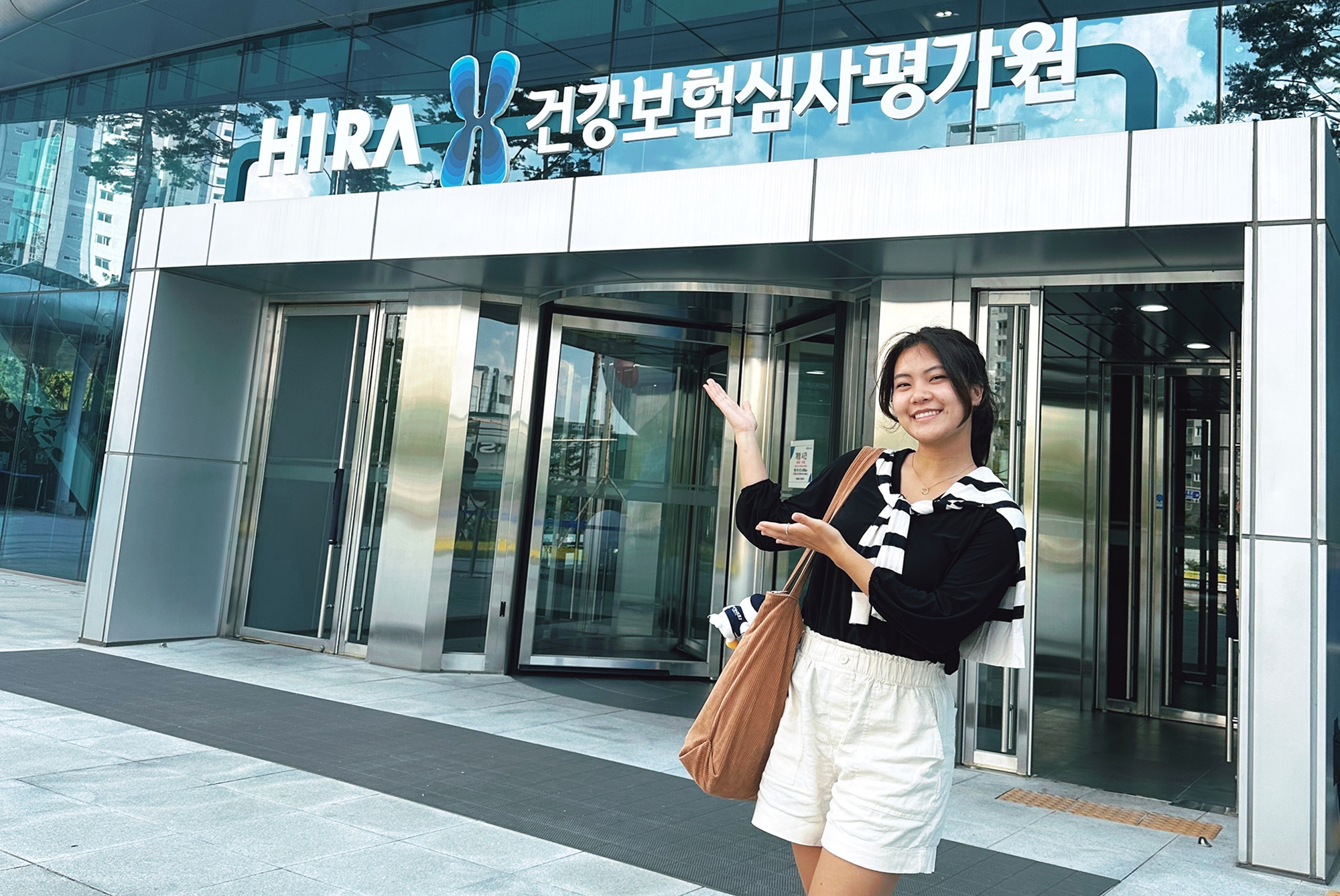Claire Jun, a third-year health and societies major in the School of Arts & Sciences, always had it in the back of her mind that she would like to go abroad during her time at Penn, ideally to combine her interests in health care policy, law and her minors of Korean bioethics and chemistry.
While she grew up speaking Korean with her family in Birmingham, Alabama, Jun wanted to develop a level of professional fluency that could make it possible for her to someday work in the health care sector, caring for Korean speakers.
Then, sitting in her Korean heritage class last spring, a Ph.D. student visitor came to speak about their amazing experience in Japan, all thanks to the Foreign Language & Area Studies (FLAS) Fellowship.
“It was inspiring to hear about their time there and how much their language skills improved,” Jun says. “It seemed like a good way to see what I could do with my Korean language skills and look at health policy while I was there. So, I applied for the FLAS and am so thankful for it.”
Sponsored by the U.S. Department of Education, the FLAS program offers undergraduate and graduate-level academic year and summer fellowships to students studying specific languages plus related academic or professional studies.
According to Fred Dickinson, director of Penn’s Center for East Asian Studies (CEAS), FLAS fellowships are the centerpiece of the Center’s promotion of East Asia studies across campus and will total nearly $1 million during the current funding cycle, which runs from 2022 to 2026. This year, CEAS is supporting five summer awards—one Korean, two Chinese, and two Japanese language students—and nine academic-year FLAS awards--one Chinese, four Japanese, and four Korean language students.
Jun says her time in South Korea was a dual experience. On the one side, she participated in the language program at Yonsei University, attending classes Monday through Friday. In the afternoons, she would go to her health policy internship with Lee Jin-Yong, executive director at the Research Institute at the Health Insurance Review and Assessment Service (HIRA). Analogous to the Center for Medicare and Medicaid Services in the U.S., HIRA conducts claims reviews and quality assessment of health care services under the Ministry of Health and Welfare.
“From commuting to HIRA in Wonju to sitting down with a family medicine physician at the Seoul National University Hospital in Bundang, I learned the power of a centralized, universal health care system working across cities,” she says. The internship also allowed her the opportunity to see care being delivered up front, shadowing a fertility specialist and attending her own doctor’s visit.
“I gained a more personal perspective on the standards of care in South Korea versus the U.S.,” she says. “I’ve always been fascinated by the cross-cultural delivery and inner workings of health care.”
She says the most rewarding part was using Korean all day every day. “Communicating with Korean professors and students alike, it opened my eyes to the cultural nuances between our two countries, and I wondered how something so universal as health could be delivered so differently.”
An added bonus, she says was that she was able to spend time with family in Korea. Both sets of grandparents and aunts and uncles she’d never met before. Her parents came to America in 1999 and they’ve only returned to visit once in that span. “It was just a lovely experience to reconnect with them through our shared language,” she says.
Jun says the biggest benefit in going abroad is being tossed into a very unfamiliar environment and forced in the best way to rely on the other students you meet.
“You really depend on each other in the name of surviving in this foreign environment. I met students from China, Japan, Taiwan, and we all already had a level of Korean knowledge or skills. So, right off the bat I was speaking to them in Korean rather than English, which was interesting.”
Being placed in an unfamiliar environment, Jun says, forced her to become comfortable with the uncomfortable and learned the value in taking risks. Her Korean gradually became smoother, and her confidence skyrocketed as she practiced daily with local people and classmates.
“Studying abroad is full of surprises, and its immersive nature has really influenced my day-to-day mannerisms coming back home” she says. “For those considering FLAS or any other study abroad program, I highly encourage seeking meaningful experiences outside of the classroom not only to fortify their time abroad but also to gain a deeper awareness of social issues at the cultural and political level.”








